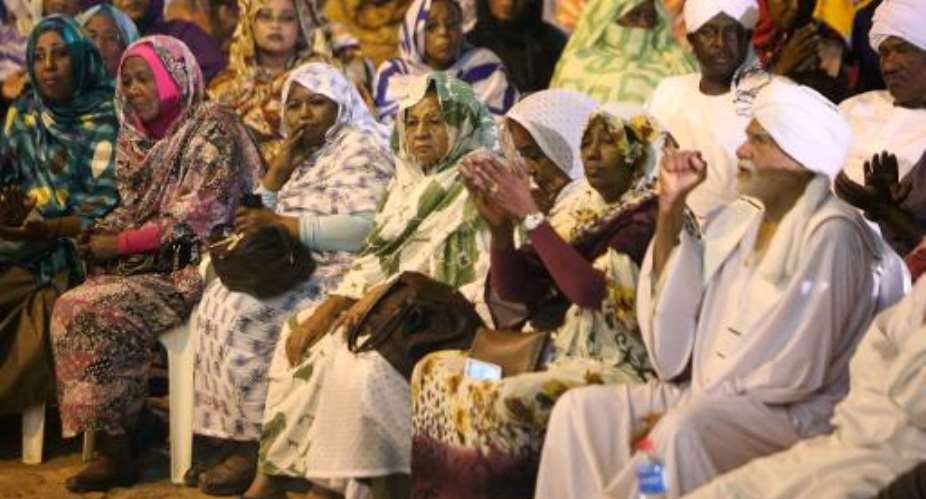Khartoum (AFP) - Sudan's prosecutor on Tuesday called for two political detainees to face a raft of charges, some of which could incur the death penalty, their defence told AFP.
Farouk Abu Issa and Amin Makki Madani were arrested in Khartoum on December 6 after returning from the Ethiopian capital Addis Ababa, where they signed an agreement aimed at uniting opposition groups.
The prosecutor submitted its case recommending six charges against the two to a judge in Khartoum, said Moaz Hadra, spokesman for the detainees' defence.
The judge will also hear the prosecution case in a court on Monday February 23, before deciding whether to press the charges against the opposition figures.
The charges were founding and running a "terrorist organisation," as well as "undermining the constitutional order, inciting war, inciting hatred against the state and publishing false reports," Hadra said.
All except publishing false reports carry the death sentence as the maximum penalty.
Abu Issa and Madani were arrested after returning from Ethiopia where they had signed the agreement uniting political parties, rebels and civil society groups opposed to the government.
Abu Issa signed for a grouping of opposition parties he leads and Madani signed for civil society groups.
The opposition accord came amid preparations in Sudan for April elections that are widely expected to extend President Omar al-Bashir's 25 years in power.
He seized power in a 1989 coup, but won a 2010 election that was criticised by observers for failing to meet international standards and was marred by opposition boycotts.





 2024 elections: Resign if you can't be faithful to party - Sagnarigu NDC PC desc...
2024 elections: Resign if you can't be faithful to party - Sagnarigu NDC PC desc...
 Five arrested, remanded over alleged murder of two police officers at Transacco
Five arrested, remanded over alleged murder of two police officers at Transacco
 Tax exemptions better than incentives for churches – Tax Analyst tell Bawumia
Tax exemptions better than incentives for churches – Tax Analyst tell Bawumia
 Transport Minister sues Law Platform Editor for defamation
Transport Minister sues Law Platform Editor for defamation
 Voter registration: Police arrest NPP Treasurer for Mpohor for registering minor
Voter registration: Police arrest NPP Treasurer for Mpohor for registering minor
 "This nonsense must stop" — Lawrence Tetteh vows to march to Jubilee House over ...
"This nonsense must stop" — Lawrence Tetteh vows to march to Jubilee House over ...
 2024 elections: “If indeed you stand for peaceful elections the time is now for ...
2024 elections: “If indeed you stand for peaceful elections the time is now for ...
 I have the attributes to be president of this country — Bernard Monarh
I have the attributes to be president of this country — Bernard Monarh
 Cecilia Dapaah saga: ‘Turf war’ between AG, EOCO, OSP indicates they’re not ‘cor...
Cecilia Dapaah saga: ‘Turf war’ between AG, EOCO, OSP indicates they’re not ‘cor...
 Ghana will become the first African country to embrace blockchain-powered gover...
Ghana will become the first African country to embrace blockchain-powered gover...
